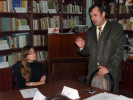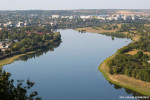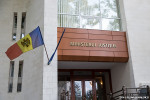If they said it was better over the Prut, they could be sentenced to death
The commission for studying and assessing the totalitarian Communist regime in Moldova, while examining the archives of the Security and Information Service and the Ministry of the Interior, discovered a series of fabricated cases against writers, priests and other activists, by order of the Communist Party of the Moldovan Soviet Socialist Republic (MSSR), the commission’s chairman Mihai Tasca told Info-Prim Neo.
”In June 1940, the Soviet regime started to apply the Penal Code of Ukraine. But this Code was introduced in the MSSR on December 14, 1940. So, they did not have the right to use it earlier,” Mihai Tasca said.
He also said that the Ukrainian Penal Code was adopted in 1926, but it was used to punish persons from the MSSR who committed offenses earlier, especially in 1918. Most of the times, the persons were sentenced to arrest, exile or event death because they were kulaks, served in the army of Anton Denikin (leader of the anti-Bolshevik White Russians in Russia’s civil war), worked in Romanian administrative bodies, were Christians or because they said the life over the River Prut was better
Mihai Tasca said at the last plenary meeting of the commission that will take place on May 29, they will present details of the final study. It will have six chapters and over 30 paragraphs and will present the events of 1917-1991 in chronological order. The study will have an addendum that will focus on the events that have taken place in Moldova since 1991 until present.
The report of the commission for studying and assessing the Communist totalitarian regime must be submitted to Acting President Mihai Ghimpu by June 1. “After analyzing the events of 1917-1991, we will give the regime the grade it deserves,” Mihai Tasca said.
An international conference will take place in Chisinau on May 24 and 25. It will bring together experts from the Baltic States, France and other countries that condemned the totalitarian communist regime.
The commission for studying and assessing the totalitarian Communist regime in Moldova was set up under presidential decree on January 14. It has 30 members, who are mainly historians and philologists.












